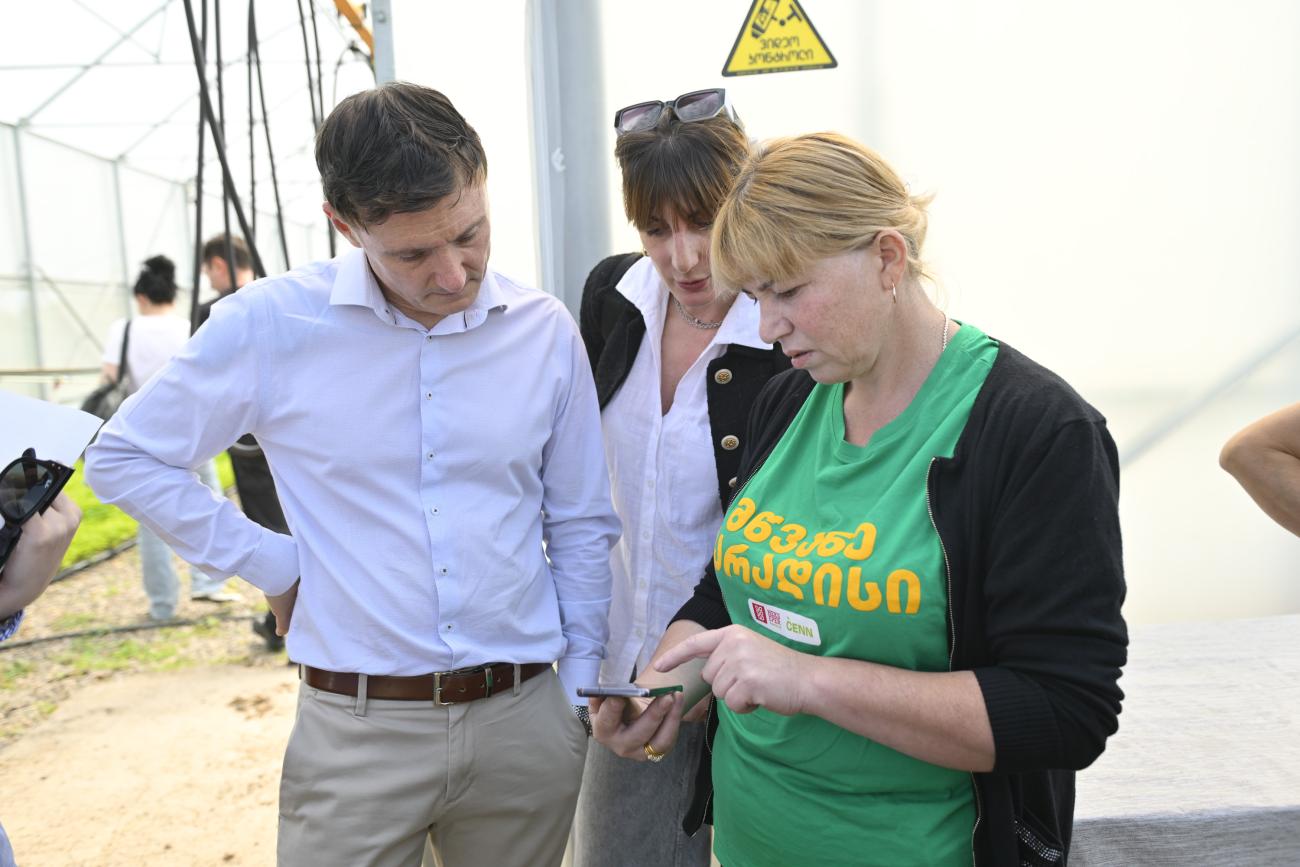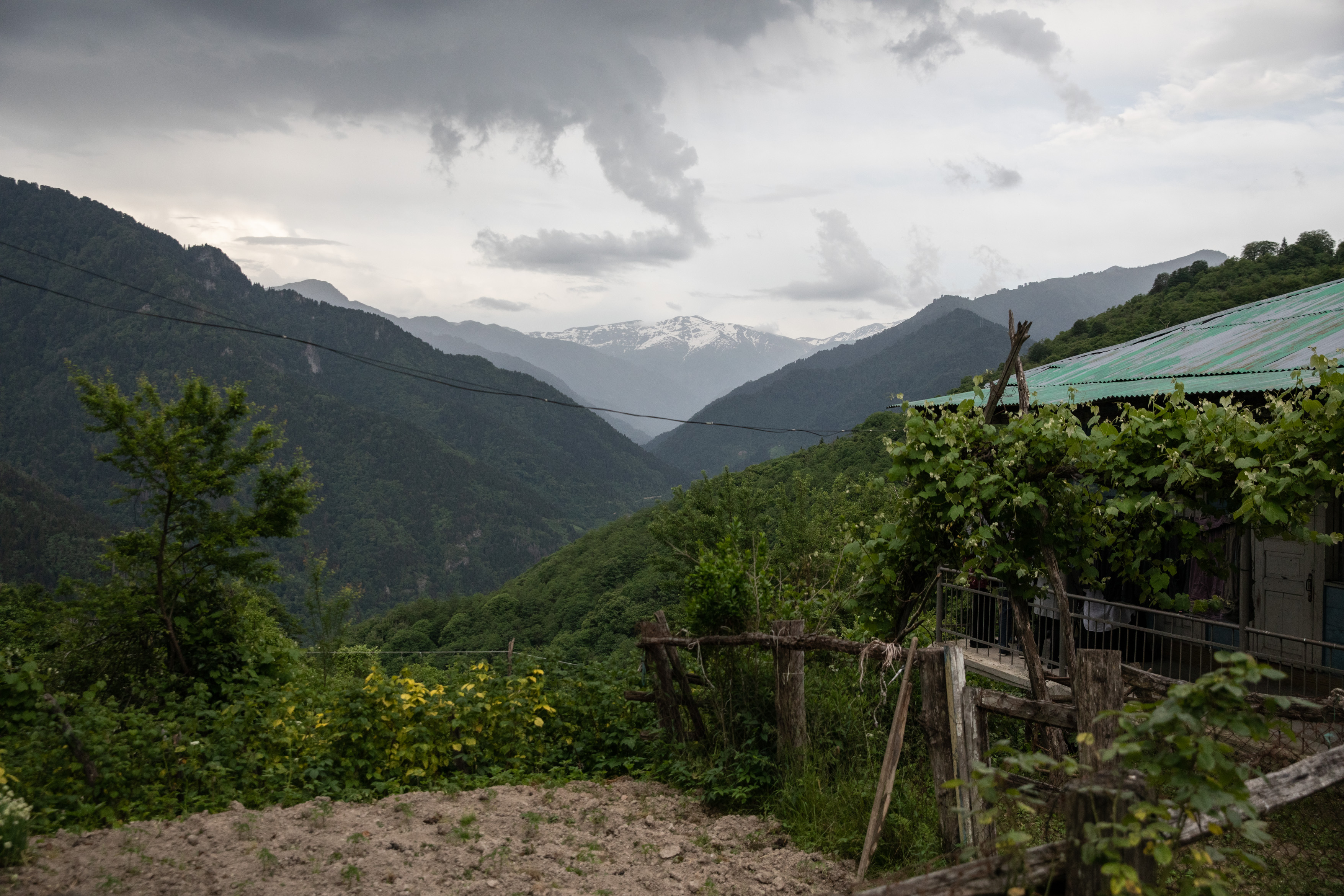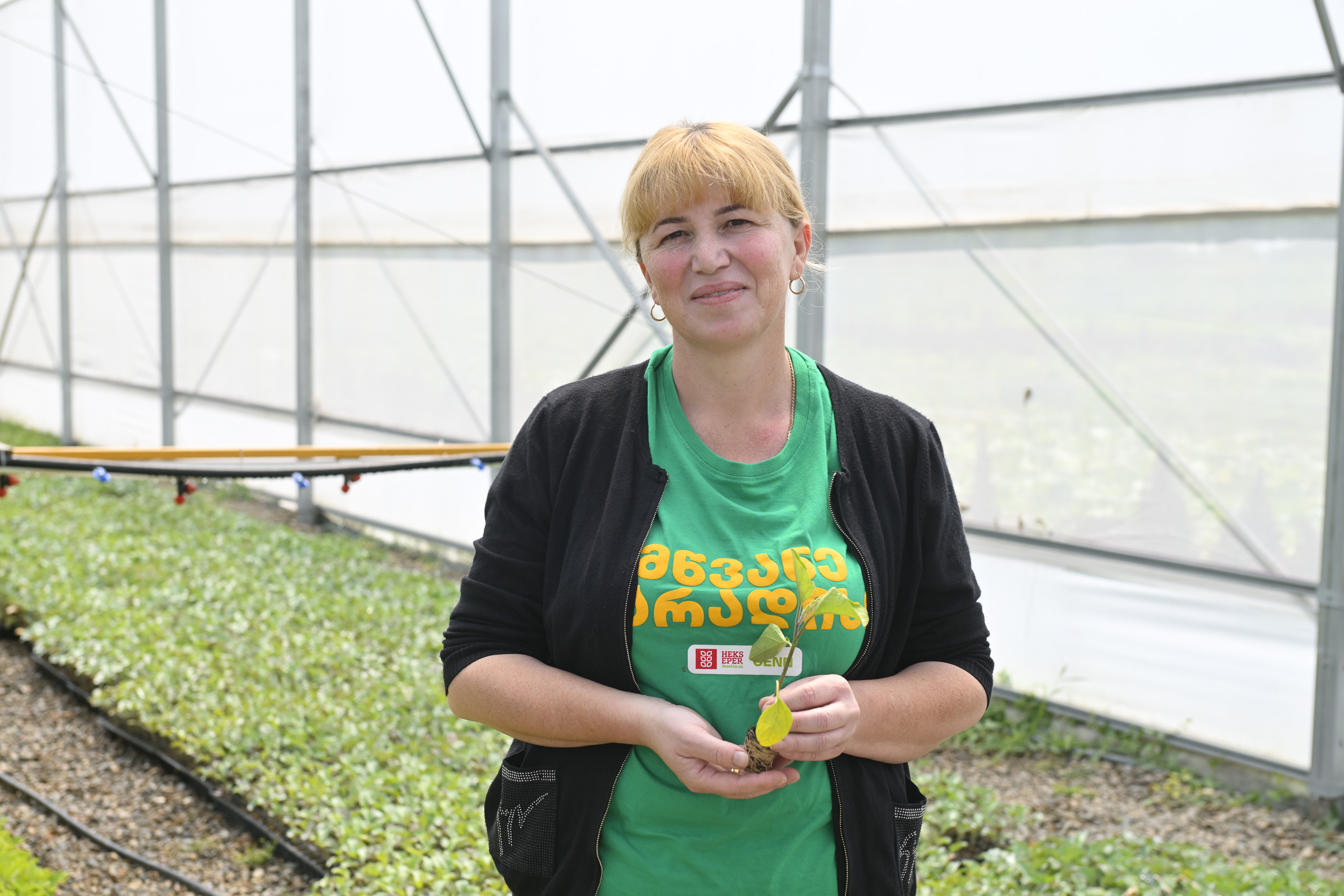How Georgia is Building Climate Resilience

Georgia’s breathtaking mountains and winding rivers represent its beauty but also its challenges. With more than 20,000 rivers cutting through steep terrain, the country faces increasing threats from floods, landslides, droughts and avalanches. Around 40 per cent of Georgians live in areas vulnerable to these natural hazards, and the risk continues to grow due to climate change.
As the country experiences the rising toll of climate-induced hazards, it is responding with growing determination to adapt and build resilience.
This national push is supported by the UN in Georgia, where Resident Coordinator (RC) Didier Trebucq ensures a coherent, forward-looking approach to climate resilience and disaster preparedness. The UN Country Team (UNCT) is leveraging collective expertise to ensure climate risks are addressed holistically across development, humanitarian and policy agendas.

Risk reduction in action
Supported by the United Nations and development partners, Georgia has transformed disaster risk reduction from a policy vision into practical, on-the-ground change. Early efforts focused on training local officials to interpret hazard maps, establishing flood warning systems, and organizing school evacuation drills.
That groundwork paved the way for a significant leap forward in 2019: a seven-year, $74 million national resilience programme led by the government with support from the UN Development Programme (UNDP), the Green Climate Fund and the governments of Sweden and Switzerland. The programme targets 11 of Georgia’s most disaster-prone river basins, where new hydrometeorological networks, early warning systems and protective infrastructure now help safeguard lives, homes and livelihoods. The programme also strengthens local governance systems and technical institutions, embedding risk analysis into local planning.
Beyond engineering, it invests in people, empowering communities through awareness campaigns, education, and hands-on training. When complete, the initiative will directly protect 1.7 million Georgians, nearly half the population.
Georgia also adopted a national Hazard Zoning Roadmap in 2024, creating a unified system for safer land use planning and risk assessment. This milestone aligns with Georgia’s broader commitment to the Sendai Framework for Disaster Risk Reduction, reinforcing a shift from reaction to prevention, where preparedness becomes protection.
Innovating for a changing climate
With strong policies in place, Georgia is harnessing innovation and digital tools to extend resilience from national institutions to local farms and villages.
In Maradisi, a small farming community in Marneuli Municipality, where droughts, floods and harsh winters are becoming more frequent, climate-smart tools are essential. The Georgia Climate Services for Agriculture (GECSA) app, developed by UNDP in partnership with the Rural Development Agency and powered by the Food and Agriculture Organization’s (FAO) advanced agrometeorological station, provides hyperlocal, real-time climate data directly to farmers’ phones.
“With the right information, we can protect our crops, conserve water, and plan better for the future,” says Naira Paksadze, a member of the women-led Green Maradisi cooperative, which uses this data to optimise irrigation, anticipate pests, and plan planting cycles with greater accuracy. The cooperative’s success in blending innovation and inclusion also reflects Georgia’s commitment to gender-responsive climate action, where rural women are positioned not only as beneficiaries but as changemakers.
This work reflects a broader shift led by RC Trebucq, placing actionable knowledge in the hands of the most vulnerable, whether it’s a smallholder farmer in Marneuli or a mountain rescue team in Oni.
RC Trebucq noted, “The true measure of resilience isn't just in the infrastructure we build, but in the foresight and knowledge we put into the hands of those most affected by climate change. Our coordinated UN effort, from the GECSA app to rescue equipment, ensures that no Georgian is left behind in the face of climate change. Anticipating risk and taking early, preventive action is the foundation of effective disaster risk reduction.”

Preparedness as protection
Across Georgia, preparedness is increasingly a whole-of-society effort. Volunteers in small villages serve as first responders, while schools across the country conduct regular evacuation drills using a child-friendly guide developed by the UN Children’s Fund (UNICEF) and national authorities.
In 2024, more than 3,800 people received training in disaster preparedness through UN-supported programmes. Approximately two-thirds were women. These initiatives ensure that when hazards strike, communities can act swiftly and confidently.
Technology also plays a critical role. At the government’s request, the UN activated the International Charter on Space through the UN Office for the Coordination of Humanitarian Affairs (OCHA) and the UN Satellite Centre (UNOSAT). The Charter provided satellite imagery to help authorities assess damage and forecast future risks.
In 2024, the UN Office of Project Services (UNOPS) in Georgia, in partnership with the European Union, completed a three-year project aimed at strengthening the Emergency Management Service under the Ministry of Internal Affairs of Georgia. As part of the initiative, UNOPS procured advanced safety equipment and high-tech solutions, including emergency rescue and training tools, land, sea, and mountain search equipment, high-mobility and all-terrain vehicles, skiing gear, and drones designed for search and rescue operations.
Investing in a safer future
Georgia’s resilience journey, which spans from green technology in rural areas to improved mountain rescue capabilities, demonstrates the value of preparedness as an investment in the future. However, additional efforts are needed in public education, inclusive planning, infrastructure, early warning systems, data, and coordination to protect lives and sustain progress in the face of natural challenges.
Building resilience before hazards materialise remains the most cost-effective strategy. It is also key to achieving Georgia’s commitments under the Paris Agreement, the Sendai Framework, and the Sustainable Development Goals.
Under the 2026–2030 UN Sustainable Development Cooperation Framework, the UN and Georgia prioritise climate resilience, early warning, and preparedness, aiming to equip all Georgians with the tools and knowledge to face a changing climate.
This approach reflects the leadership vision of the Resident Coordinator, who has positioned climate resilience with the UNCT as a unifying thread across the UN’s development and humanitarian work.
To read more coordination results from Georgia click here.













